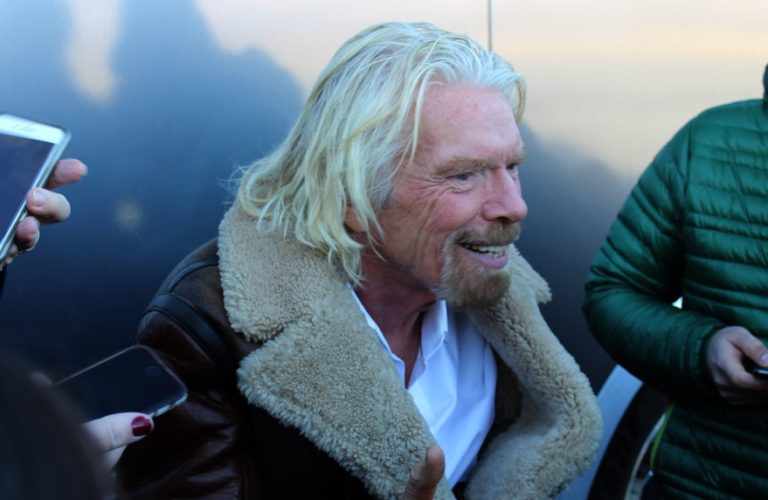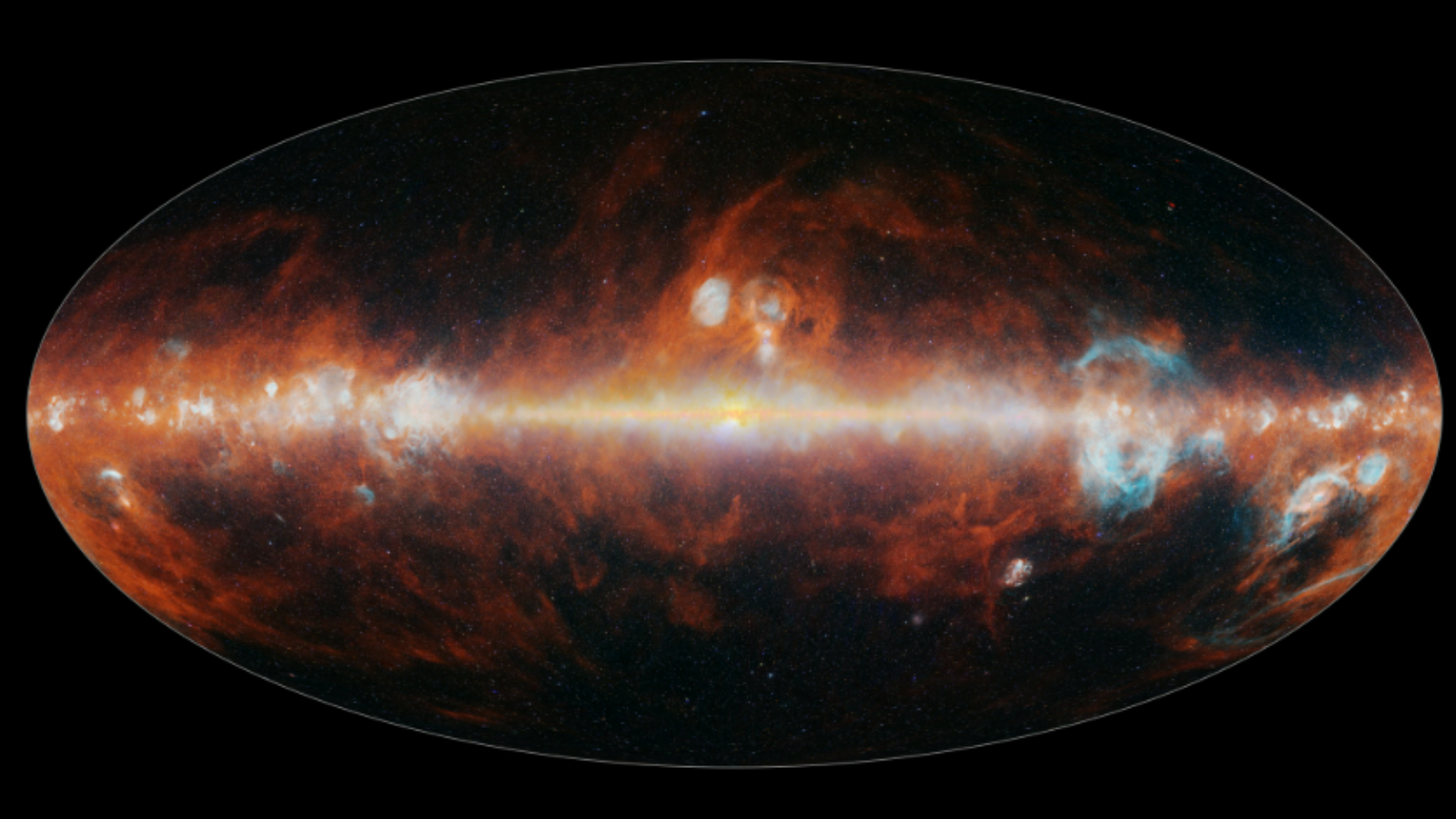Virgin Galactic's Richard Branson Looks Ahead to Beginning Commercial SpaceShipTwo Flights
MOJAVE, Calif. — With a first flight to the edge of space under the company's belt, Virgin Galactic founder Richard Branson believes commercial flights of SpaceShipTwo could begin some time next year.
An exuberant Branson took the stage at the Mojave Air and Space Port here to congratulate the company and its employees for a successful test flight Dec. 13 of the SpaceShipTwo vehicle named VSS Unity, which reached a peak altitude of 82.7 kilometers. The flight was the first by the vehicle to cross the boundary of 50 miles, or approximately 80 kilometers, that U.S. government agencies use to award astronaut wings.
"How on Earth do I describe the feeling?" he said on stage, referring to his emotions from watching the successful test flight. "Joy? Definitely. Relief? Emphatically. Exhiliaration? Absolutely." [In Photos: Virgin Galactic's SpaceShipTwo Unity Soars to Space in Test]
Offstage, a more subdued Branson, huddling with a group of reporters, said he shed "tears of relief" after the successful flight. "When you are in the test flight program of a space company, you can never be completely, 100 percent sure, because that's what a test flight program is," he said. "The spaceship was tested to its limits today and she performed just as we wished and we just couldn't be happier."
This flight does not mark the end of the test flight program for SpaceShipTwo. "We will now push on with the remaining portion of our flight test program, which will see the rocket motor burn for longer, and VSS Unity fly still faster and higher," he said onstage.
On the Dec. 13 test flight, SpaceShipTwo's hybrid rocket motor burned for 60 seconds, several seconds longer than the high end of estimates of the burn time company officials gave at a briefing the day before. George Whitesides, chief executive of Virgin Galactic, said after this flight that a full-duration burn would last approximately five seconds longer.
Branson was optimistic that the next test flight could take place in the near future after a review of data from this flight. "If nothing shows up that needs to be changed, then the next test flight could be quite soon," he told reporters, suggesting that could happen in roughly a month.
Breaking space news, the latest updates on rocket launches, skywatching events and more!
He also stated that, if all goes well, only a few more test flights would be needed before Virgin Galactic would be ready to shift operations to Spaceport America in New Mexico, where the company plans to perform commercial flights. "Ideally, we want to do three more flights before we go to New Mexico."
Whitesides said upcoming test flights would include flying company employees in the vehicle along with pilots in order to test operational procedures for future flights that will carry spaceflight participants. "Once we've gotten through that, we could start thinking about doing commercial flights," he said, not giving a specific number of test flights planned beyond "not a huge number."
Branson confirmed that he still planned to be on the first commercial flight of SpaceShipTwo from Spaceport America. "Sometime next year, once the testing is finished, then I'll do my flight," he said.
The company plans to grow the fleet of vehicles supporting commercial operations. Besides VSS Unity, two more SpaceShipTwo vehicles are currently under construction, with the first of them expected to be completed in about a year. Branson said the company would "soon" start building two more SpaceShipTwo vehicles as well as a second WhiteKnightTwo carrier aircraft.
Virgin Galactic has about 700 customers who have either paid the full price of a ticket or a deposit. "We stopped for the last four years taking new reservations," he said, but will start taking reservations again soon.
Those new customers might be paying more than the $250,000 price previously offered by the company. "What will happen in the short term is that the price will go up a bit," he said. "And then, in the next most likely three years, it will start coming down." He didn't specify the size of the increase or by how much the price would later decrease.
"Space is not cheap," he said. "I've personally invested about a billion dollars into this project." He said that the total investment was about $1.3 to 1.5 billion, a total Whitesides said later included not just Virgin Galactic but also spacecraft manufacturer The Spaceship Company and small launch vehicle firm Virgin Orbit.
Branson suggested that he may be looking for additional investors into the company. Virgin Group announced an agreement with the Public Investment Fund of Saudi Arabia in October 2017 that would have resulted in a $1 billion investment in Virgin's space companies. However, Branson said in October that he had terminated the deal in reaction to the murder of journalist Jamal Khashoggi by the Saudi government.
"We said no to the Saudi money because of the Khashoggi incident," he said. "By being successful today, I suspect we'll bring in other investors to help us take it on to the next stage."
This story was provided by SpaceNews, dedicated to covering all aspects of the space industry.

Jeff Foust is a Senior Staff Writer at SpaceNews, a space industry news magazine and website, where he writes about space policy, commercial spaceflight and other aerospace industry topics. Jeff has a Ph.D. in planetary sciences from the Massachusetts Institute of Technology and earned a bachelor's degree in geophysics and planetary science from the California Institute of Technology. You can see Jeff's latest projects by following him on Twitter.


